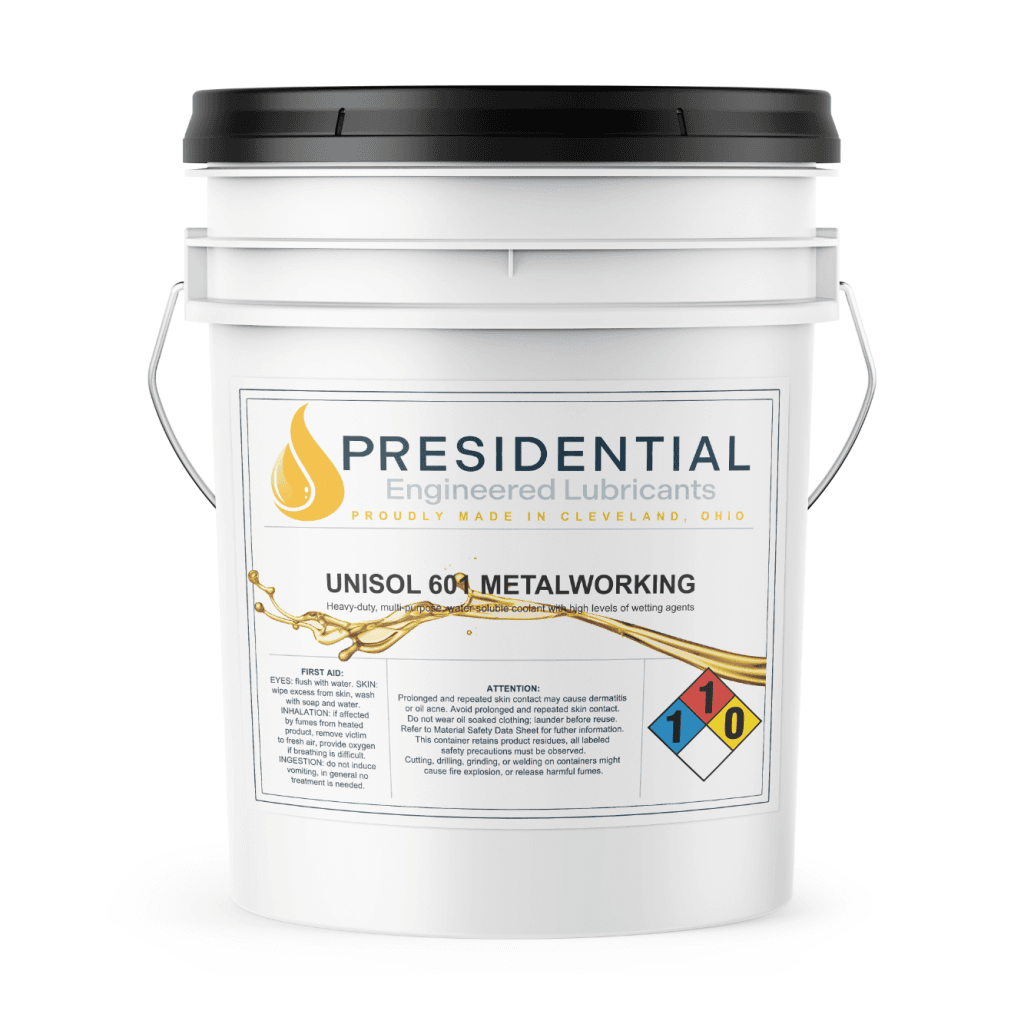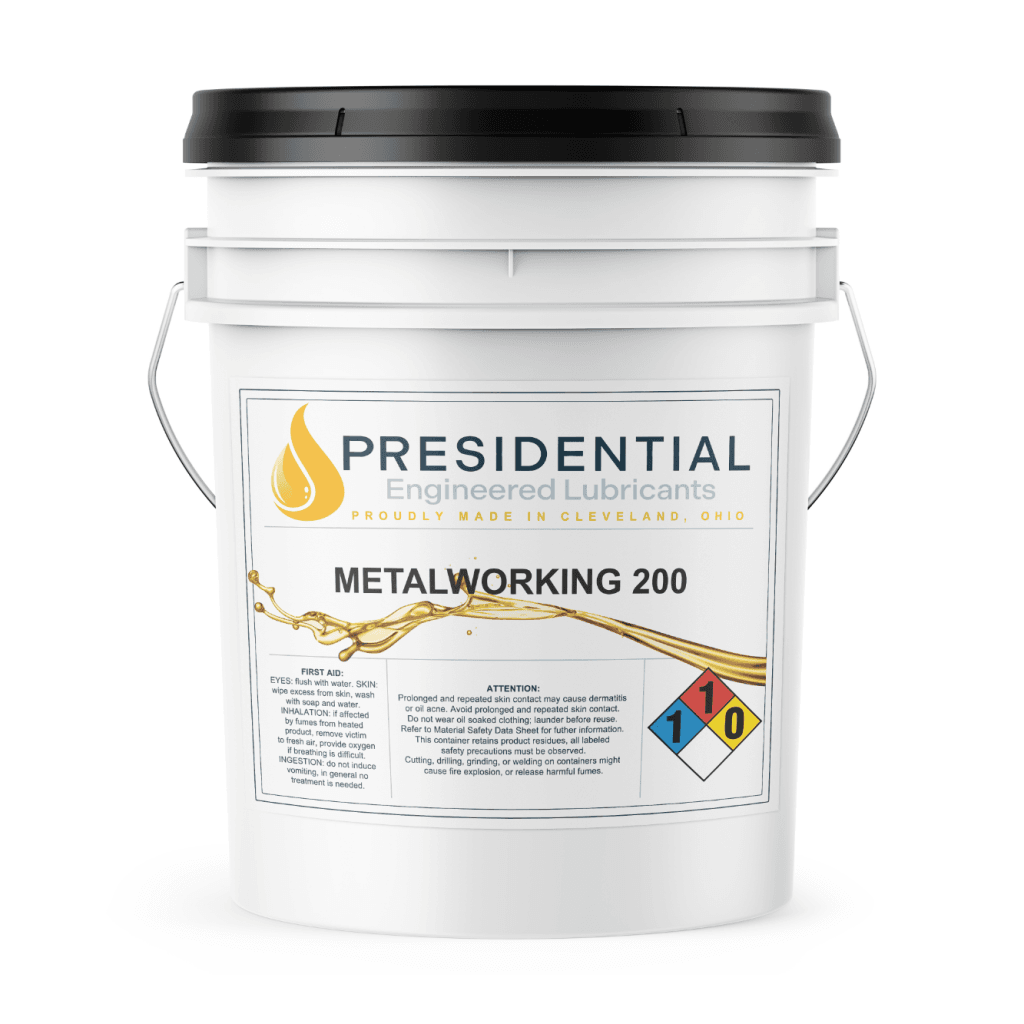When to Use Water-Soluble vs. Straight Cutting Oils

Key Takeaways
- Metalworking fluids (MWFs) include both water-soluble and oil-based fluids
- Soluble oils are best for cooling in high-speed, high-precision operations
- Straight oils are best for lubrication-intensive, slow or manual operations
- Understand the job before picking the fluid
- Choosing the right type can extend tool life and improve finish
Choosing the right metalworking fluid often feels like a trade secret. Terms like cutting oil, coolant, and soluble oil get tossed around interchangeably, leaving machinists, hobbyists, and even buyers scratching their heads. This guide clears the confusion by focusing on metalworking fluid use cases – breaking down when to use water-soluble fluids versus straight oils, not just what they are.
What Are Metalworking Fluids and Why Do They Matter?
At their core, metalworking fluids (MWFs) are liquids designed to cool, lubricate, and clean during machining and forming operations. Whether you’re running a CNC shop, drilling deep holes, or grinding precision parts, the right fluid makes a measurable difference. MWFs have four main functions including lubrication, cooling, corrosion protection, and chip removal.¹
Key benefits include:
- Reducing friction and heat buildup
- Extending tool life by minimizing wear
- Flushing chips, swarf, and abrasive particles
- Improving surface finish and machining tolerances
- Preventing corrosion when paired with proper inhibitors

Safety also plays a role. Uncontrolled microbial contamination of cutting fluids can cause a dramatic reduction in effective life and lead to production problems such as corrosion and blocked filters.² Many modern fluids, including Unisol 601, incorporate biocides or low-toxicity formulations to minimize health risks for operators.
Explore the full line of metalworking fluids engineered for modern machining and maintenance operations.
When to Use Water-Soluble Metalworking Fluids
Water-soluble fluids – often called soluble oils or emulsions – blend oil with water, prioritizing cooling performance over pure lubrication. Because water absorbs heat effectively, these fluids are especially useful in high-speed, high-volume machining environments.
They also:
- Are easy to clean with less sticky residue
- Work well with filtration and recirculation systems
- Often include additives like corrosion inhibitors and anti-bacterial agents
Ideal Use Cases for Soluble Oils
- CNC milling of aluminum and brass
- Multi-pass finishing operations where heat builds quickly
- Shops with filtration systems and recirculation systems
- Applications requiring superior surface finish and temperature control

Products like Unisol 601 offer chip removal, cooling, and anti-bacterial protection – ideal for CNC shops.
When to Use Straight Oils (Cutting Oils)
Unlike soluble oils, straight oils are 100% petroleum – or mineral-based with no water content. Their strength lies in high lubricity, making them perfect for applications where reducing friction is more critical than cooling.
Because they form an oily film, straight oils:
- Provide superior lubrication under high pressure
- Offer natural rust protection (but may require post-cleaning)
- Excel in low-speed, high-torque applications
They’re often labeled simply as “cutting oils” in industrial settings, though terminology can overlap.
Ideal Use Cases for Straight Oils
- Thread cutting or tapping
- Deep hole drilling where tool lubrication is essential
- Manual lathes or mills in hobbyist or custom fabrication shops
- Machining tough alloys like stainless steel or hardened steels

For applications like tapping or threading, straight oils like Metalworking 200 and OilKut HD offer the lubricity needed for long tool life.
Common Terminology Confusion
If you’ve ever heard machinists talk about cutting oils and coolants like they’re the same thing, you’re not alone. Here’s the breakdown:
- Cutting Oil: Usually means straight oil, though some use it generically
- Coolant: Typically refers to water-soluble fluids
- Metalworking Fluid (MWF): Umbrella term covering both types
Important: Never mix water-soluble and straight oils – they’re chemically incompatible. Always match your fluid to the operation type, material, and machining speed.
Conclusion
Whether you’re running a precision CNC shop or working on a garage hobby lathe, your choice of fluid directly impacts tool life, surface finish, and overall efficiency. Remember:
- Soluble oils = cooling + high-speed machining
- Straight oils = lubrication + slow or friction-heavy work
Ready to find the right fluid for your operation? Browse our full selection of metalworking oils and coolants today.
References/Sources
- 1. Valvoline Global, https://www.valvolineglobal.com/en-eur/metalworking-fluids-101/
- 2. ScienceDirect, Tribology International Journal, https://www.sciencedirect.com/science/article/abs/pii/0301679X83900427

